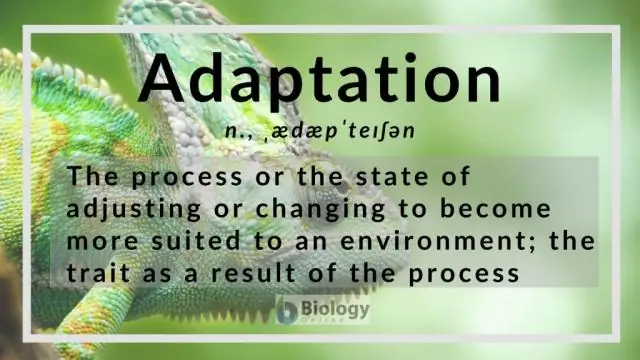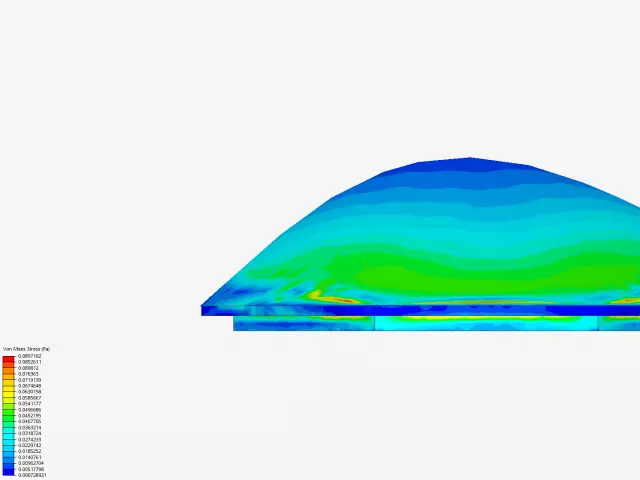- Author Rachel Wainwright wainwright@abchealthonline.com.
- Public 2023-12-15 07:39.
- Last modified 2025-11-02 20:14.
Adaptation
Adaptation (lat. Adaptatio - adaptation) is the process of adaptation of an organism, population or other biological system to changing conditions of existence (functioning). Human adaptation is based on morphophysiological changes developed in the process of his evolutionary development, which are aimed at maintaining the relative constancy of his internal environment - homeostasis.
Allocate:
- Pain adaptation - adaptation of receptors and special central formations to the action of damaging stimuli, which leads to the elimination or weakening of pain sensations;
- Gustatory adaptation - an adaptation of the gustatory analyzer, which leads to a weakening of gustatory sensations;
- Adaptation to altitude - adaptation of a person to the conditions of existence and vigorous activity with a reduced partial pressure of oxygen in the inhaled air (as a rule, when climbing mountains and being in unpressurized cockpits of aircraft);
- Visual adaptation - the adaptation of the visual analyzer to the level of brightness of color (light) stimuli, which causes changes in color (light) sensitivity;
- Adaptation of nerve centers is an adaptation that manifests itself in a decrease in the excitability of the nerve centers with prolonged exposure to any stimuli;
- Mental adaptation - adaptation of a person's mental activity to the requirements and conditions of the environment;
- Receptor adaptation - adaptation, which is manifested by a decrease in the sensitivity of receptors to the constant action of stimuli;
- Light adaptation - a visual adaptation to increase the brightness of light. It is manifested by a decrease in the light sensitivity of the eyes;
- Sensory adaptation (synonym: sensitive adaptation) - the adaptation of the analyzer, which is manifested by a decrease in the intensity of sensation with prolonged exposure to the corresponding stimulus;
- Auditory adaptation - adaptation of the auditory analyzer to the effects of intense sound. It is manifested by a decrease in auditory sensitivity during or after the action of sound;
- Tactile adaptation - adaptation of tactile receptors to the actions of stimuli, manifested by a decrease in their sensitivity;
- Dark adaptation - visual adaptation to darkness. Manifested by an increase in the light sensitivity of the eyes;
- Temperature adaptation - adaptation of thermoreceptors to constant temperature. It is manifested by a decrease in their sensitivity;
- Adaptation to a toxic substance - the body's adaptation to the intake of toxic substances from the environment. It is expressed by the fact that the initial reaction to these substances disappears forever and completely, then it is not detected using modern research methods;
- Labor adaptation (synonym: professional adaptation) is the adaptation of a person to a certain form of labor activity (conditions of the working environment and the nature of labor), which, as a rule, leads to an increase in professional working capacity;
- Physical adaptation - adaptation of the body to changing physical activity;
- Color adaptation - visual adaptation to color stimuli. It is manifested by a decrease in the color sensitivity of the eyes and a violation of the distinction of color tones;
- Evolutionary adaptation - the adaptation of a population to systematic unidirectional unsharp changes in environmental conditions. Occurs in a number of generations by selection of more adapted genotypes;
- Enzymatic adaptation - an increase in the activity of a certain enzyme in cells under the influence of specific extracellular substances, which are usually the substrate of the inducible enzyme.
Found a mistake in the text? Select it and press Ctrl + Enter.






